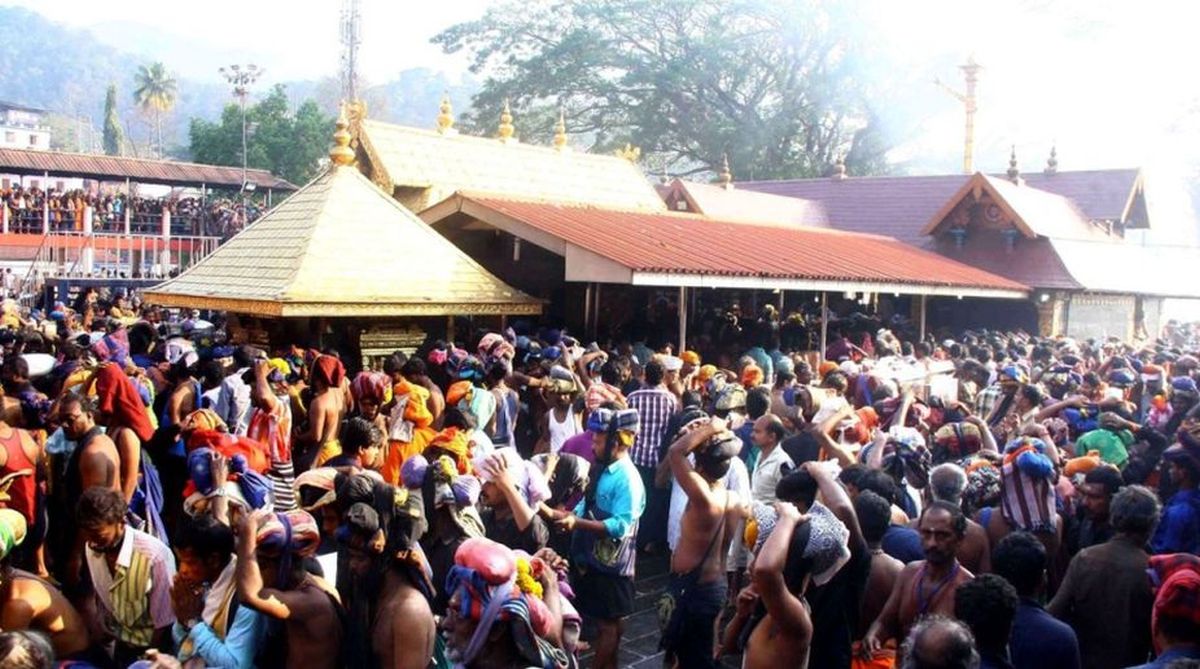India’s Got Latent: SC issues notice on YouTuber Ashish Chanchlani’s plea against FIRs
SC issues notice on YouTuber Ashish Chanchlani’s plea to quash or transfer FIR in India’s Got Latent case; tagged with Ranveer Allahabadia’s petition.
Chief Justice of India Dipak Misra observed that the right to worship is given to all devotees and there can be no discrimination on the basis of gender.

Devotees at Sabarimala temple (Photo: IANS)
In a much-awaited verdict, the Supreme Court on Friday in a 4:1 ruling, scrapped the ban on the entry of women devotees in the Sabarimala temple in Kerala, stating that women were equally entitled to enter and worship in the temple.
“Right to worship is given to all devotees and there can be no discrimination on the basis of gender,” Chief Justice of India Dipak Misra observed.
Advertisement
“Religion can’t become cover to deny rights,” the court observed.
Advertisement
Four judges supported the lifting of ban whereas Justice Indu Malhotra proposed a dissenting opinion supporting the ban.
Asserting that right to practice a religion was available to both men and women, the apex court observed that “Religion is one for one, and dignity is identity”.
Justice Indu Malhotra who presented a dissenting opinion said, “the court should not interfere in matters of faith”. “Equality must be seen with the rights of worshippers,” she added.
Justice Indu Malhotra further stated that the present judgment will not be limited to Sabarimala and that it will have wide ramifications.
A five-judge Constitution bench headed by Chief Justice Dipak Misra also comprising justices R F Nariman, A M Khanwilkar, DY Chandrachud, and Indu Malhotra was hearing the matter which had four opinions.
Read | What is the Sabarimala temple case?
The Supreme Court had in August said women had the constitutional right to enter Sabarimala temple and pray like men without being discriminated against.
“When a man can enter, a woman can also go. What applies to a man, applies to a woman also,” the bench had observed.
“The right to enter a temple is not dependent on a legislation. It is the constitutional right,” it had said.
The Kerala government, which has been changing its stand on the contentious issue of women of a particular age group entering the Sabarimala temple, had on July 18 told the Supreme Court that it now favours their entry.
Earlier in August, the Kerala government told Supreme Court that the practice of barring women between the age of 10 and 50 years had no constitutional protection as the temple devotees do not qualify as a distinct religious denomination.
Advertisement